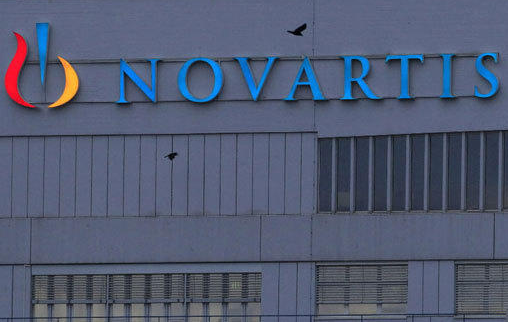-
Tips for becoming a good boxer - November 6, 2020
-
7 expert tips for making your hens night a memorable one - November 6, 2020
-
5 reasons to host your Christmas party on a cruise boat - November 6, 2020
-
What to do when you’re charged with a crime - November 6, 2020
-
Should you get one or multiple dogs? Here’s all you need to know - November 3, 2020
-
A Guide: How to Build Your Very Own Magic Mirror - February 14, 2019
-
Our Top Inspirational Baseball Stars - November 24, 2018
-
Five Tech Tools That Will Help You Turn Your Blog into a Business - November 24, 2018
-
How to Indulge on Vacation without Expanding Your Waist - November 9, 2018
-
5 Strategies for Businesses to Appeal to Today’s Increasingly Mobile-Crazed Customers - November 9, 2018
Novartis comes up with portfolio for Developing Nations
It will first launch sales in Kenya, Ethiopia and Vietnam and may expand to up to 30 countries.
Advertisement
Novartis stated the portfolio will treat cardiovascular diseases, diabetes, respiratory illnesses and breast cancer and will be provided to non-governmental organizations, governments, and among other public-sector healthcare providers for $1/treatment, monthly.
Drugmakers’ charity programs have usually focused on infectious diseases and ones spread by parasites, including malaria, HIV and tuberculosis – diseases that have always been major killers in developing countries.
“Novartis Access is a natural extension of two important contributions our company makes to society: developing innovative medicines that help people fight disease and working to get them to as many people as possible”, said Joerg Reinhardt, Chairman of the Board of Novartis.
The drug list includes the Swiss company’s valsartan used for hypertension, vildagliptin, which is for diabetes, and a number of generic medications from its Sandoz segment including breast cancer fighter tamoxifen.
But chronic diseases related to lifestyle and genetics are becoming more common in developing countries, following the trend in wealthy nations, where heart disease and cancer are top killers.
Of course, the Novartis Access portfolio will definitely include company patented as well as generic Novartis medicines.
About 28 million people die from noncommunicable diseases each year in low- and middle-income countries.
Amidst pressure on the overall pharmaceutical industry to provide more, GSK agreed in 2009 to slash its price of drugs for the poor countries of the world.
Advertisement
And now, it’s furthering that commitment with an access initiative for low-income countries. So while startup Turing shocked the health scene with the sudden price hike on its drug Daraprim, which treats a parasitic infection and was prescribed to about 9,000 patients previous year, Novartis’ announcement could have far greater implications for global health. United Nations data also showed that in many countries in Africa, around 40 percent of adults are hypertensive.





























